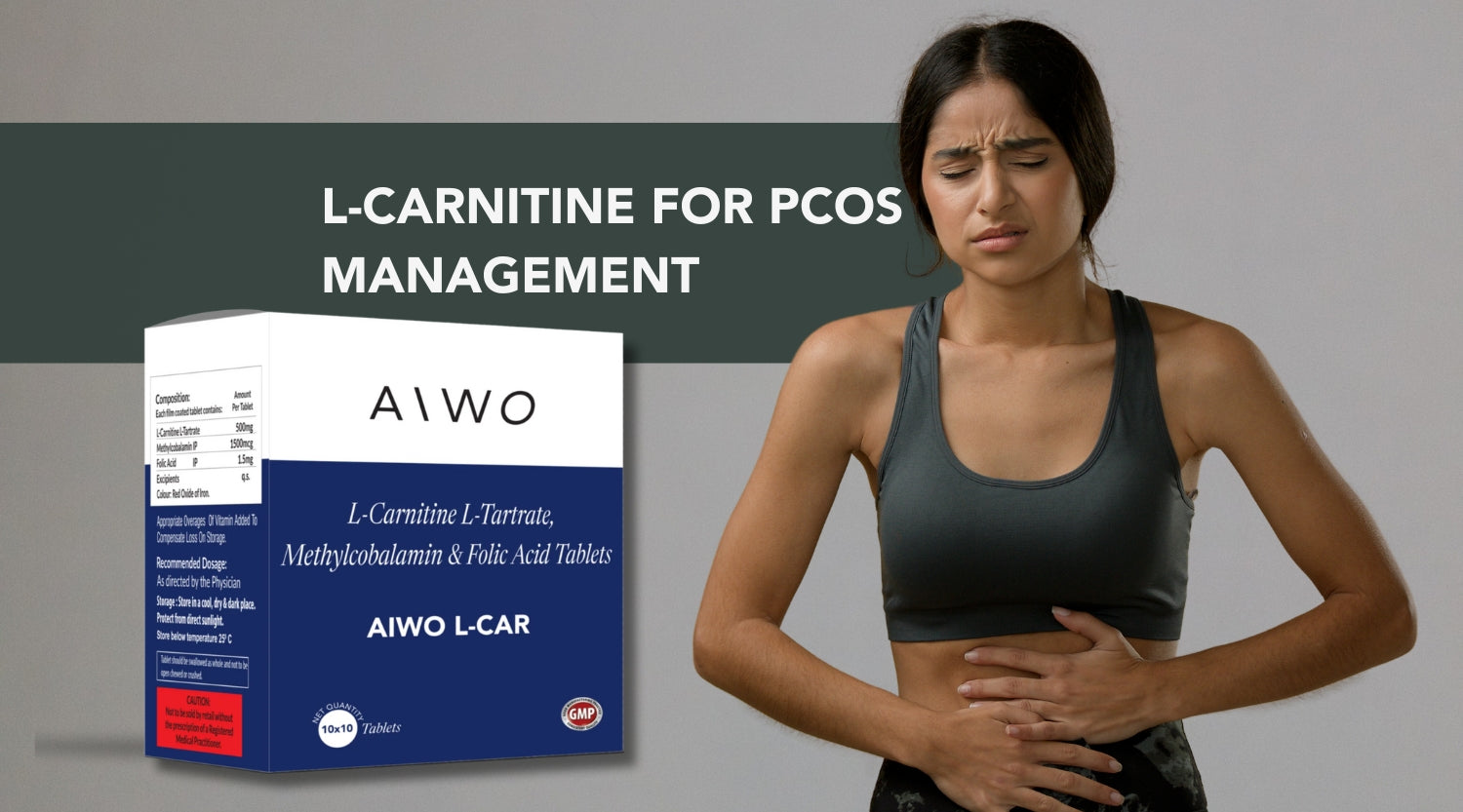
Unveiling the Connection: L-Carnitine's Role in Managing PCOS Symptoms
Introduction to L-Carnitine and Its Role in PCOS
Understanding L-Carnitine: Structure and Functions
L-Carnitine is an amino acid naturally present in the body. It aids in turning fat into energy. This nutrient is crucial for heart and brain function, muscle movement, and many other body processes. L-Carnitine's role in PCOS involves improving metabolic functions. It may help manage some PCOS symptoms by boosting energy levels and supporting fat metabolism. Recognizing the structure and functions of L-Carnitine can illuminate its potential benefits for women with PCOS.
The Relationship Between L-Carnitine and PCOS
L-Carnitine may play a key role in managing PCOS. Studies show it impacts energy, insulin, and hormone levels. With PCOS, the body may struggle to process fatty acids efficiently. This is where L-Carnitine steps in. It helps turn fats into energy, vital for those with PCOS. It may also aid in lowering high androgen levels, common in PCOS patients. Balancing these hormones can help relieve symptoms. L-Carnitine's benefits for PCOS is an active area of research promising hope for many.
Exploring the Benefits of L-Carnitine for PCOS Sufferers
Enhancing Energy Metabolism with L-Carnitine
L-Carnitine plays a key role in energy metabolism, essential for PCOS sufferers. It helps the body turn fat into energy, which can boost overall vitality. With PCOS, energy production is often compromised, making it harder for women to maintain normal weight and energy levels. Including L-Carnitine in the diet or through supplements can therefore promote better energy metabolism. This increased energy can aid physical activity, a crucial part of managing PCOS symptoms. Understanding the connection between L-Carnitine and energy can help sufferers make informed choices about their health.
L-Carnitine's Impact on Insulin Sensitivity and Fertility
L-Carnitine may help women with PCOS by improving insulin sensitivity. This can help the body to better manage blood sugar levels, which is often a concern for those with PCOS. Improved insulin action can also aid in weight control. This is key for PCOS management. For fertility, L-Carnitine has been linked to improved ovary function. It supports the energy needs of developing eggs. It can also aid in a healthier pregnancy for those with PCOS. These benefits suggest L-Carnitine could be a valuable part of a PCOS treatment plan.
Reducing Androgen Levels and the Risk of Endometrial Cancer
For women with PCOS, high androgen levels can be troubling. L-Carnitine may offer hope. Studies suggest it might lower these male hormones. This could ease symptoms like hair growth and acne. Another PCOS concern is endometrial cancer risk. As research unfolds, L-Carnitine shows potential to reduce this risk. Yet, the relationship between L-Carnitine, androgens, and cancer needs more exploration. Women with PCOS may find relief by including L-Carnitine in their care plan.
Optimal Dosages and Sources of L-Carnitine for PCOS
Assessing the Right Dosage of L-Carnitine for PCOS
Determining the ideal amount of L-carnitine for PCOS is key. It depends on factors such as weight, diet, and PCOS severity. Studies suggest a range from 250 to 2000 mg per day. It's best to start with a lower dose and adjust as needed. A healthcare provider can give personalized advice. Always follow the guidance of a professional when using supplements.
Plant-Based and Animal-Based Sources of L-Carnitine
- Animal-Based Sources: L-Carnitine can be found in various meats and dairy products. Red meat, like beef and lamb, has higher levels. Milk and cheese also have L-Carnitine.
- Plant-Based Sources: For those on plant-based diets, L-Carnitine is present in smaller amounts. Avocado, whole wheat bread, and asparagus are some plant sources. However, levels are much lower compared to animal sources.
- Note on Absorption: It's important to remember that L-Carnitine's bioavailability from plant sources may be less compared to animal sources. As such, vegetarians and vegans might need to pay extra attention to their intake to meet their needs.
Supplementation and Its Role in PCOS Management
Supplements can play a key part in managing PCOS. They make it easy to get the right dose of L-carnitine. Also, they are good for those with dietary limits. It's vital to pick quality products and talk to a doctor. This ensures they fit with your health plan and other meds. Supplements should be part of a full PCOS care plan, not the only part. Choose ones with clear labels and no added fillers or chemicals. Real benefits come from combining these with healthy eats and exercise.
Share
